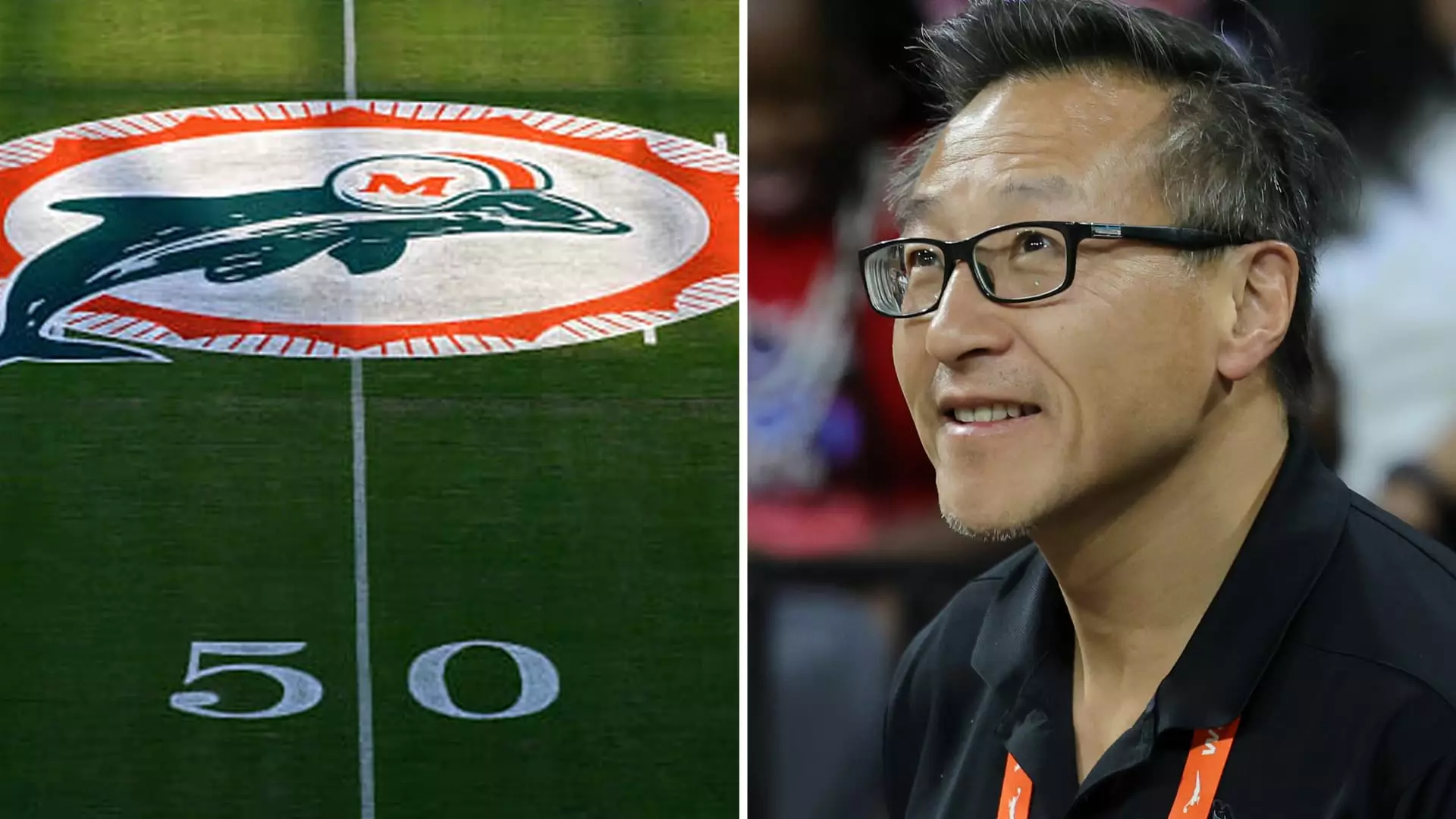In recent years, the sports industry has witnessed a notable shift as owners increasingly seek to diversify their portfolios. The Miami Dolphins, a prominent NFL franchise, find themselves at the center of this transformation. Reports have emerged that the franchise is in advanced negotiations to sell a minority stake to Ares Management, a private equity firm, and billionaire Joe Tsai, the owner of the Brooklyn Nets. This move reflects a growing trend among team owners aiming to secure multiple sports assets and control their venues, thereby maximizing their revenue streams.
The implications of this potential deal extend far beyond the Dolphins themselves. The valuation of the assets involved—estimated at $8.1 billion—underscores a shift in how franchises like the Dolphins are viewed, both from a financial and strategic perspective. In contrast, a controlling valuation for the same assets would surpass $10 billion, indicating that while minority stakes are becoming more appealing, the competition for major ownership positions remains fierce.
This series of negotiations marked the first instance of private equity investment in the NFL since the league modified its financial rules in August. The NFL has traditionally been resistant to outside investment, but the adjustment signifies a changing marketplace. Only recently, the NFL’s inherent conservatism has come under scrutiny as valuations for franchises soar, making traditional ownership increasingly unattainable for potential investors. The Miami Dolphins are now valued as the eighth most valuable team in the NFL at approximately $7.1 billion—not including the Hard Rock Stadium, which adds significant value.
As discussions for the sale unfold, it is reported that Ares Management is set to acquire a 10% stake in the Dolphins, while Tsai may negotiate a further 3%. This move not only represents a significant financial commitment but also signals a new paradigm in how franchises align themselves with private equity interests. Yet, despite the excitement surrounding these discussions, no formal agreements have been signed, illustrating the complexities and challenges of navigating ownership stakes in such a high-stakes environment.
Stephen Ross, the current owner of the Dolphins, acquired the franchise for $1.1 billion in 2009. His strategic vision demonstrates a keen understanding of the interconnectedness between sports teams and the real estate sector. By leveraging the financial influx from this sale, Ross aims to bolster his real estate portfolio in South Florida while simultaneously investing further in sports initiatives. From hosting high-profile events like the Miami Grand Prix to managing the Miami Open, Ross’s diversified interests continue to strengthen the financial viability of the Dolphins.
While Ross has generated considerable revenue, reporting around $673 million in revenue in 2023, his approach also indicates a desire to maintain a familial connection to the franchise. Earlier in the year, he rejected a staggering $10 billion offer for control of the team. Such decisions reflect an underlying philosophy—to keep the team within his family’s legacy—despite the lucrative financial opportunities that are often available in the sports landscape.
The endorsement of private equity investment in the NFL represents a transformative moment for the league. Ares Management, as one of the four approved groups, brings a wealth of experience in managing assets, further enhancing the financial sophistication of the league. Tsai’s broad portfolio, which extends beyond the NBA to include major lacrosse teams and soccer franchises, emphasizes a new stratification within the sports world, where multi-ownership conjoins sports and entertainment under a single umbrella.
As this evolving narrative within the NFL demonstrates, the intersection of sports and finance continues to redefine ownership models. While the deal for the Dolphins remains under discussion, its broader implications signify a shift towards a more inclusive and diversified framework for sports ownership. Enthusiasts and analysts alike are left to ponder how this will affect not only the Dolphins but also the larger NFL landscape in the years to come. As teams adopt such strategies to remain competitive, the emphasis may increasingly shift from traditional single-entity ownership to a more collaborative approach involving private equity’s financial muscle.

